We have just received word that the new Sepia Records Mario Lanza release Golden Days has debuted on Billboard's Traditional Classical Albums chart at #10 for the week of April 20, 2024. What an achievement for an artist who has been gone for almost 65 years!
Mario Lanza CD "Golden Days" Reaches #10 on Billboard's Traditional Classical Albums Chart!4/17/2024
0 Comments
Enrico Caruso, Jnr, son of the legendary tenor, once observed that, “Mario Lanza excelled in both the classical and the light popular repertory, an accomplishment that was beyond even my father’s exceptional talents.” This CD underlines that remarkable versatility, featuring some of Lanza’s finest recordings of popular English songs, operetta, Neapolitan classics, and operatic arias from the earlier monaural period of his career. But this is no ordinary Lanza compilation, for each of the 23 tracks offered here is in Digitally Extracted Stereo (DES) for the first time. Thanks to this revolutionary process, the tenor’s authentic vocals can now be appreciated as never before in astonishingly realistic-sounding multi-track stereo, with the orchestra surrounding his voice, rather than boxing it in within the same narrow monaural “cell.” The CD is now in stock at Sepia Records in London, and can be ordered here. (Although it's currently listed as a "Forthcoming Release," it is available now.) For those in the US, the CD is now available for pre-orders from the Mario Lanza Institute. Please click here to place your pre-order. Proceeds from Institute sales of the disc will go toward scholarships in Lanza's name for young singers. Snippets of eight tracks from the CD can be heard here. There is also a discussion on the CD here, and below is a stunning promotional video by Vincent Di Placido:
A further attraction is that ten of the mono recordings are in Digitally Extracted Stereo (DES), a process that has provided greater clarity to some of the less well-recorded material, such as the exciting 1955 film outtake of “Nessun dorma” and the 1959 “One Alone” acetate, while providing a sumptuous orchestral backing to sonically superior recordings, including the MGM “Serenade” from The Student Prince, “Because You’re Mine” with Doretta Morrow, and “You and the Night and the Music.” Click here to listen to a teaser from the CD. Other highlights on the CD include a previously unreleased outtake of the haunting “Hills of Home” (beautifully sung, and superior to the released version), a superior second take of the unused original “Serenade” from the film of the same name (of which only the first take has ever been commercially released), an extended version of the “Miserere” (recorded for the soundtrack of The Great Caruso) that restores the opening with soprano Lucine Amara and the chorus, and the best reproductions I have heard of Lanza’s 1958 version of “Tu Ca Nun Chiagne” and his 1948 Hollywood Bowl performance of “Nessun dorma.”
UPDATE (30 April 2023): The CD is now in stock at Sepia Records' London headquarters. Please click here for orders. For those in the US, the CD is currently available exclusively from the Mario Lanza Institute. To order the CD from the Institute, please click here. Proceeds from purchases of the CD from the Institute will go towards scholarships in Lanza's name for young singers. From May 6 onwards, the CD will also be available for in-person purchase at the Mario Lanza Museum on 1214 Reed Street, Philadelphia. (Please phone 215-238-9691 for information about opening hours.)
They include a gorgeous “Lee Ah Loo”—as heard in Because You’re Mine, but happily without the MGM compression here—a slightly extended (and thrilling) “Cielo e Mar” from the first operatic montage in The Great Caruso, and four revelatory 1959 recordings: “Only a Rose” (duet version, but this time without the overlaid soprano), “Serenade,” “Silent Night,” and a rare reprise version of “Nocturne.” It’s fascinating to hear these late recordings in their original, untampered form, and they all confirm that RCA did Lanza no favours in its subsequent mixing.
The bulk of the CD features remastered radio transcriptions and vinyl pressings. These include excellent restorations of “Where or When” and “Testa adorata,” both of which transcend their transcription sources. (In fact, the former sounds the best I’ve heard it.) Among the restored vinyl selections are Lanza’s often-overlooked first version of “Come Dance With Me” (the RCA recording, and not the more familiar Seven Hills of Rome soundtrack rendition)—now sounding richer and more vibrant than ever—a gloriously radiant “Look for the Silver Lining,” and a beautifully reproduced “You Are My Love.” The CD also features the best reproductions I’ve heard of the RCA version of “Marechiare,” “Dio ti giocondi” from Otello with Licia Albanese, and the Monologue that immediately follows this duet. As always with Sepia Records’ Lanza releases, a booklet of detailed liner notes and rare photos is included. UPDATE (July 6): Sepia Records already has this CD in stock (it's currently listed on their website as a "forthcoming release" for August 2022, but is actually available now). Click here for ordering information. The CD will be available from Amazon and other online sellers from August 5. For purchasers in America, the Mario Lanza Institute and Museum will also be stocking this CD from July 22, with proceeds going towards the Institute’s annual scholarships. The CD can be ordered now from the Mario Lanza Institute at this link.
I first heard about the existence of these acetates from Bill in May 2021, and I and my fellow compilers---Armando Cesari, Vince Di Placido, and Carmel Parisi---were simply over the moon when we started receiving file after digital file from Bill shortly after that. For the first time, we were able to hear, among other things, Lanza's magnificent first recording of "My Destiny," the original (pre-edit) first take of "Beloved" from Lanza's May 1953 remake session of the song, the Finale from Marta featured in The Great Caruso in its original form---without all the coughing!---the full version of "Una furtiva lagrima" from That Midnight Kiss, "Celeste Aida" from the same film but this time with its previously discarded recitative, a longer extract of the Rigoletto Quartet recorded for The Great Caruso, a complete version of the Addio alla Madre from Because You're Mine that is superior to the take featured on the 1998 Rhino CD Mario Lanza at MGM, and many other treasures. Major sound restoration was necessary, as many of the recordings were severely scratched, and/or suffered from extensive surface noise. Sepia Records' sound engineer, Robin Cherry, has performed miracles on many of them, but allowances still need to be made for some of the recordings. I doubt that anyone who loves Lanza will complain, though, as where else can one find a restored version of, say, the 1945 live radio broadcast of "The House on the Hill," or the 1959 "Nocturne"---with the tenor's voice now front and centre (exactly as recorded in the studio and not blighted by incompetent posthumous mixing)? Here is the full track listing: 1 The House on the Hill (Charles) Live CBS radio broadcast from Liederkranz Hall, New York City, 7 November 1945. 2 I Know, I Know, I Know (Kaper-Russell) [original film acetate---and it sounds glorious] MGM Studios, Los Angeles, 1 December 1948. 3 O Holy Night (Adam) [original acetate] Republic Studios, Los Angeles, 29 May 1950. 4 The Lord’s Prayer (Malotte) [with organ only] [original film acetate] MGM Studios, 2 August 1951. 5 Deep in My Heart, Dear (from The Student Prince) (Romberg-Donnelly) [outtake] MGM Studios, 12 August 1952. With Ann Blyth, soprano. 6 My Destiny (Brodszky-Cahn) [outtake--superior to the version featured in the film] Warner Bros. Studios, Los Angeles, 7 July 1955. Jakob Gimpel, pianist. 7 Serenade (from the film Serenade) (Brodszky-Cahn) [original film acetate, with previously unheard orchestral intro] Note: This is the soft "Mexico" version of the song. Warner Bros. Studios, 26 August 1955. 8 Ave Maria (Bach-Gounod) [original film acetate] MGM Studios, 11 August 1950. With Jacqueline Allen, soprano. 9 L’elisir d’amore: Una furtiva lagrima (Donizetti-Romani) [full version] MGM Studios, 9 December 1948. José Iturbi, pianist. 10 Carmen: Flower Song (“La fleur que tu m’avais jetée”) (Bizet-Meilhac-Halévy) [full version; sounds better than in Toast of New Orleans] MGM Studios, 6 December 1949. Jakob Gimpel, pianist. 11 Aida: Celeste Aida (Verdi-Ghislanzoni) [full version] MGM Studios, 9 December 1948. José Iturbi, conductor; MGM Studio Orchestra. 12 Aida: O terra addio (Verdi-Ghislanzoni) [original film acetate; glorious!] MGM Studios, 18 August 1950. With Dorothy Kirsten, soprano, and Blanche Thebom, mezzo-soprano. 13 Rigoletto: È il sol dell’anima (Verdi-Piave) [rehearsal] MGM Studios, 28 August 1950. With Jarmila Novotná, soprano. 14 Rigoletto: È il sol dell’anima (Verdi-Piave) [outtake] See #13 for recording details. 15 Rigoletto: Addio! Addio! (Verdi-Piave) [original film acetate] MGM Studios, 24 November 1951. With Peggy Bonini, soprano. 16 Rigoletto: La donna è mobile (Verdi-Piave) [live performance] Performed at Massey Hall, Toronto, 5 March 1948. 17 Rigoletto: Quartet (“Bella figlia dell’amore”) (Verdi-Piave) [New extended version] MGM Studios, 22 August 1950. With Giuseppe Valdengo, baritone; B. Thebom; Olive May Beach, soprano. 18 Lucia di Lammermoor: Sextet (“Chi mi frena in tal momento?”) (Donizetti-Cammarano) [film acetate with a somewhat different mix from what we hear in the movie; Mario's voice is more forward] MGM Studios, 23 August 1950. With D. Kirsten; G. Valdengo; B. Thebom; Nicola Moscona, bass; Gilbert Russell, tenor. 19 Marta: Finale (von Flotow-Riese) [original film acetate] MGM Studios, 22 August 1950. With D. Kirsten, N. Moscona, and B. Thebom. 20 La bohème: Che gelida manina (Puccini-Giacosa-Illica) [original film acetate] MGM Studios, 29 August 1950. P.H. Adler, conductor; MGM Studio Orchestra. 21 Cavalleria rusticana: Addio alla Madre (Mascagni, Targioni-Tozzetti, Menasci) [New extended version] MGM Studios, 10 November 1951. With Katherine Hilgenberg, contralto; and P. Bonini. John Green, conductor; MGM Studio Orchestra. 22 Il trovatore: Di quella pira (Verdi-Cammarano) [original film acetate] Warner Bros. Studios, 13 July 1955. Ray Heindorf, conductor; Warner Bros. Studio Orchestra. BONUS TRACKS 23 Ave Maria (Schubert) [original film acetate; superior sound to previous reproductions] Warner Bros. Studios, 18 August 1955. Jakob Gimpel, pianist. 24 Pour un Baiser (Tosti-Doncieux) Cinecittà Studios, Rome, June 1959. 25 Love Me Tonight (from The Vagabond King) (Friml-Hooker-Post) [original "raw" acetate] Cinecittà Studios, July 1959. C. Callinicos, conductor; RCA Italiana Orchestra. 26 Nocturne (from The Vagabond King) (Friml-Hooker-Post) [original "raw" acetate] Cinecittà Studios, July 1959. C. Callinicos, conductor; RCA Italiana Orchestra. 27 Beloved [the unedited first take from the May 1953 remake session] MGM Studios, 20 May 1953. C. Callinicos, conductor; MGM Studio Orchestra. 28 La Danza (Rossini) [original film acetate] MGM Studios, 7 August 1950. Irving Aaronson, pianist. I should add that the CD booklet is stunningly presented, and includes comprehensive notes and rare photos. UPDATE (23 March): This CD is now in stock at Sepia Records in London and can be ordered here. The price, including postage, is £7.99 for the UK; £9.99 for those elsewhere in Europe; and £10.99 (= US$14.60) for the rest of the world. For those in the US only, the CD is now in stock at the Mario Lanza Museum in Philadelphia. Bill Ronayne, President of the Mario Lanza Institute, writes: "The CD is $12 + $5 Shipping & Handling. Checks should be made out to Mario Lanza Institute and sent to Mario Lanza Institute 1214 Reed Street Philadelphia, PA 19147. For credit card orders, more information or if you're ordering more than one CD, call 215-238-9691." It is also currently available for pre-order from Amazon, with a scheduled release date of April 1. Vincent Di Placido has created a beautiful promotional video for this CD (see below). New CD Release from Sepia Records: "The Immortal Voice of Mario Lanza: A Centennial Celebration"5/21/2021
A case in point is the magnificent 1950 recording of the Improvviso ("Un dì all’azzurro spazio") from Giordano's Andrea Chénier, which has never sounded more vibrant. There are numerous other surprises too, particularly among the lesser known (or, in some quarters, less appreciated) late-career gems such as "Just We Two" (from Lanza's 1959 remake of The Student Prince) and the "Drinking Song" from The Vagabond King, both of which now feature a more vital-sounding tenor than heard on previous releases.
Here is a description of the CD's contents from my liner notes: "This CD celebrates Mario Lanza’s centenary with a collection spanning the tenor’s entire professional career, from his first radio broadcasts to a quartet of studio gems from the last months of his brief but indelible life. Four of the selections are making their first appearance on a commercial CD; they include a spectacular rehearsal of “Some Day” and extended versions from Lanza’s own archives of material recorded for The Great Caruso. Other rarities include live performances of duets from The Student Prince and Verdi’s Otello. Throughout the CD, Lanza’s celebrated versatility is on full display, with every musical genre in which he excelled represented here." UPDATE (12 June 2021): The Immortal Voice of Mario Lanza: A Centennial Celebration is now available directly from Sepia Records for immediate delivery, and will be released in the US on July 16. Here is the Amazon US link for preorders. The Mario Lanza Institute and Museum is also offering this CD (and all of the previous Lanza CDs on the Sepia Records label). Here is the full track list of the CD: THE IMMORTAL VOICE OF MARIO LANZA: A CENTENNIAL CELEBRATION 1 Cavalleria Rusticana: Brindisi Recorded August 23, 1950 [longer version of the extract featured in The Great Caruso] 2 Ergo Bibamus Recorded August 7, 1952 [acetate recorded for the film The Student Prince] 3 Just We Two (from The Student Prince) [with Norma Giusti, soprano] Recorded April 1959 4 If I Loved You (from Carousel) Recorded February 15, 1952 [with spoken introduction by Lanza] 5 Long Ago (and Far Away) Recorded July 13, 1951 6 Some Day (from The Vagabond King) Recorded October 28, 1954 [previously unreleased television rehearsal] 7 Trees Recorded November 20, 1951 8 The Virgin’s Slumber Song Recorded May 29, 1950 9 Neapolitan Love Song (from Princess Pat) Recorded November 29, 1951 10 La Spagnola Recorded May 9, 1952 11 Core ’ngrato Recorded May 5, 1949 12 Marechiare Recorded August 9, 1950 [complete (one-verse) film take for The Great Caruso] 13 Torna a Surriento Recorded June 30, 1955 14 Santa Lucia Luntana Recorded December 1958 15 L’Alba Separa dalla Luce l’Ombra Recorded at June 1959 16 Pagliacci: Vesti la giubba Recorded September 1958 17 Andrea Chénier: Improvviso (Un dì all’azzurro spazio) Recorded May 18, 1950 18 Tosca: E lucevan le stelle Recorded July 22, 1950 [a much longer version of the recording featured in snippet form in The Great Caruso) 19 Otello: Già nella notte densa (Verdi-Boito) [with Jean Tennyson, soprano] Live CBS broadcast on November 14, 1945 BONUS TRACKS 20 Golden Days (from The Student Prince) [with Robert Weede, baritone] Live CBS broadcast on February 20, 1946 21 Summertime in Heidelberg Recorded April 1959 [revelatory solo version taken from Lanza's private acetate] 22 Drinking Song (from The Vagabond King) Recorded July 1959 23 Without a Song Recorded August 14, 1951
Mario Lanza: "Confounding the Enemy" - The story of the "Shower of Stars" scandal & redemption8/12/2020 Vincent Di Placido has just uploaded a documentary he has made about another pivotal moment in Mario Lanza's career: the tenor's triumphant return to live performing after a long absence from the concert stage and a two-year period of professional turmoil. Vince's documentary is partly based on my article Confounding the Enemy, but he takes my essay to a whole new level with his superb (and often moving) editing of audio and visuals, while also providing a powerful introduction that provides genuine historical context to this event. A must watch! |
This feature is for news related to Mario Lanza's life and recorded legacy. Postings here will include information about the latest CDs, books, articles, documentaries, and scintillating additions to this site. Anyone is welcome to post responses (see the "Comments" section below each item); we only ask that your posts be both civil and relevant. (Note: If you have a Lanza-related item of interest that you would like us to consider posting, please contact us here.)

Derek McGovern is a New Zealander living in Busan, South Korea, where he works as a professor of English literature at Pukyong National University. Smitten from the age of eleven with Mario Lanza's singing, he has been writing (and talking!) about the man ever since. Tags
All
|

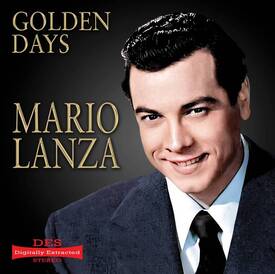
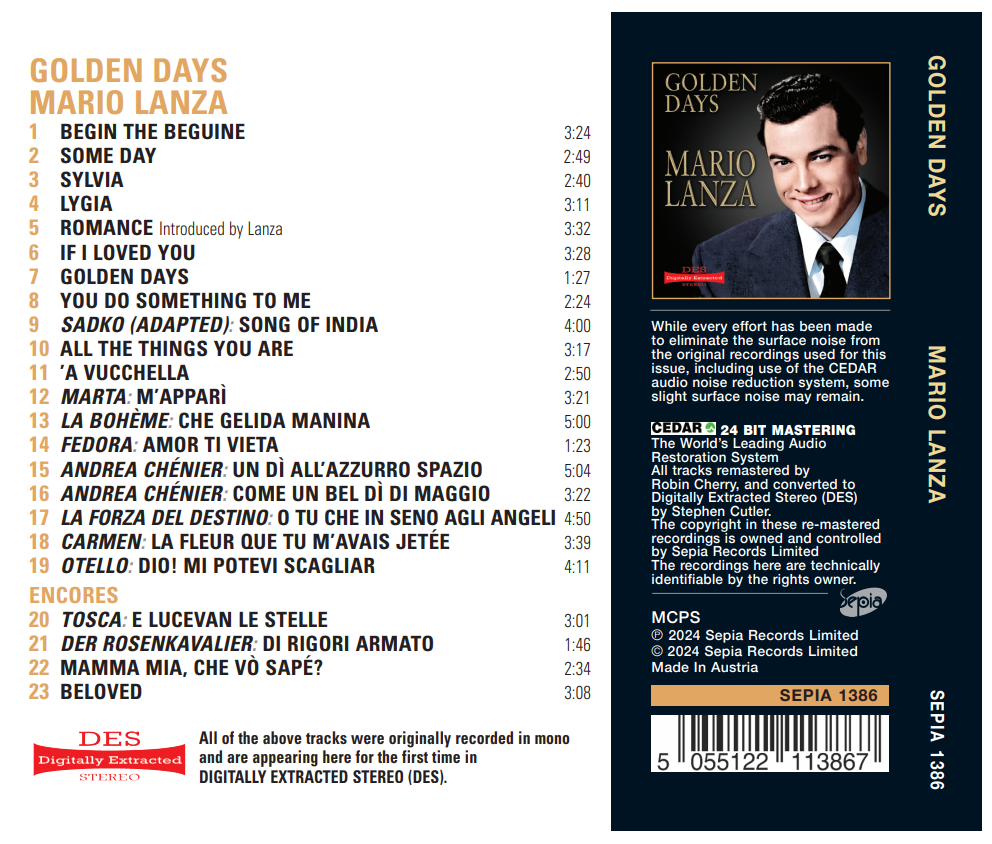
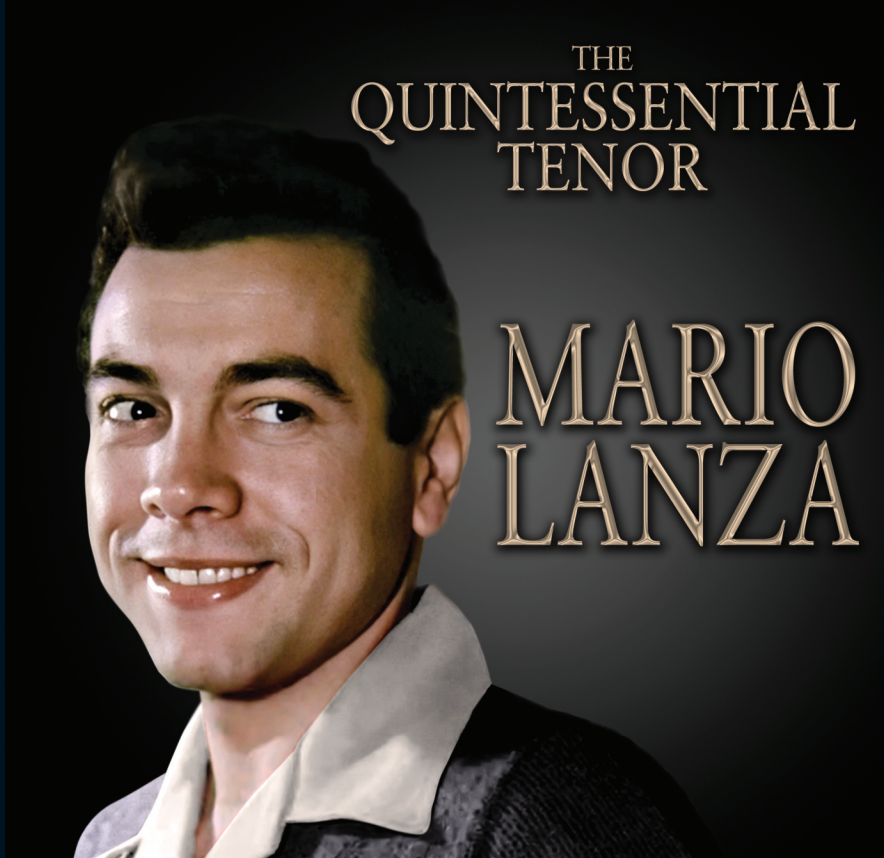
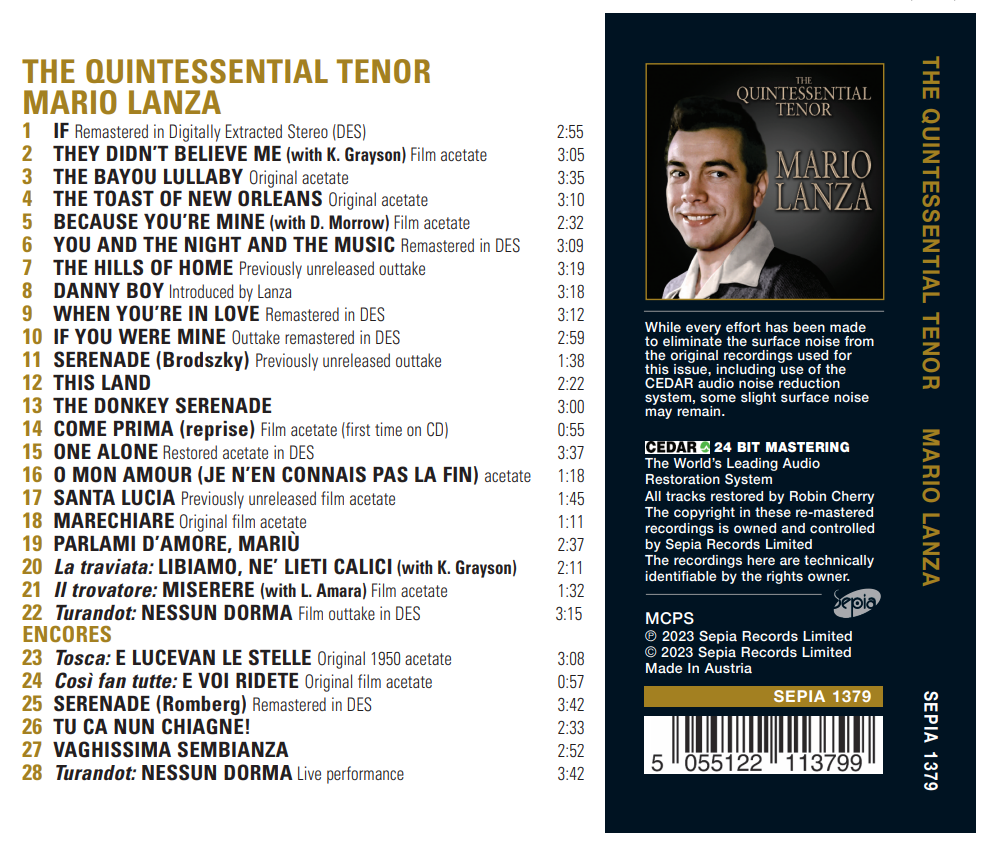
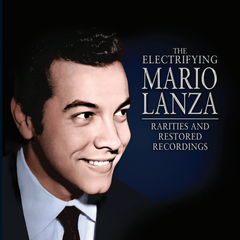
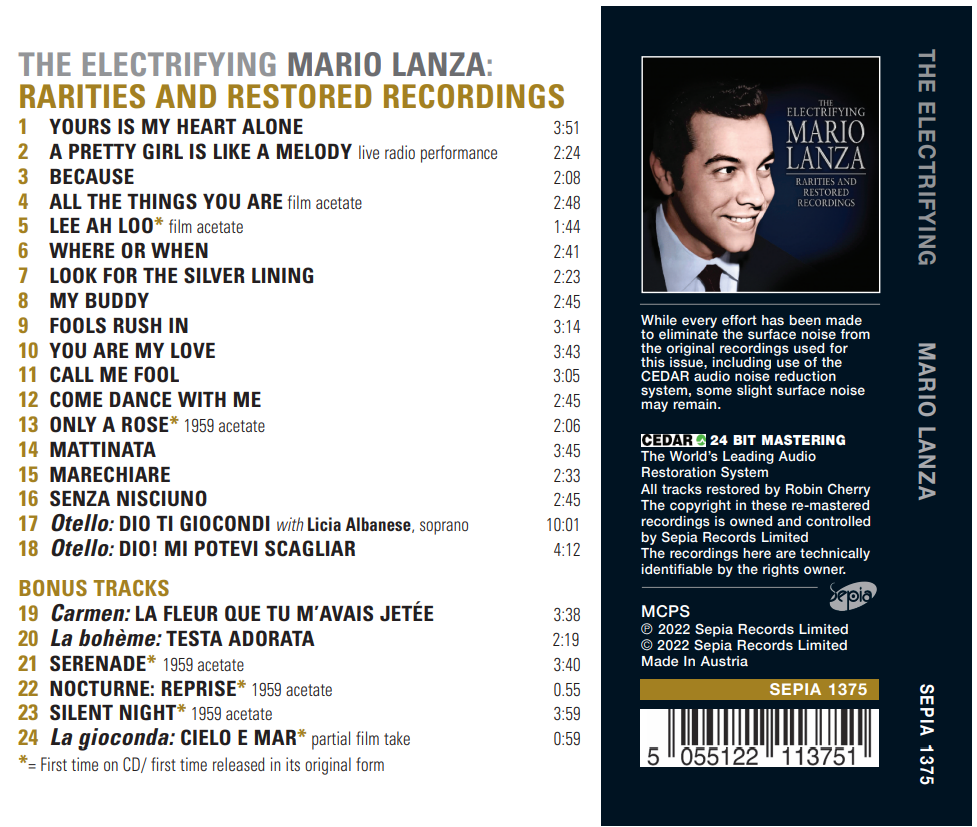
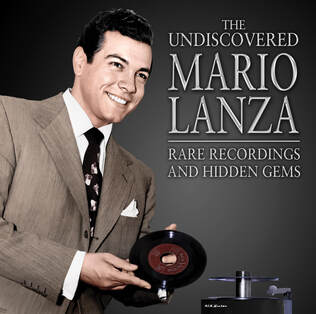
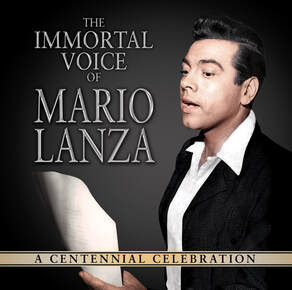
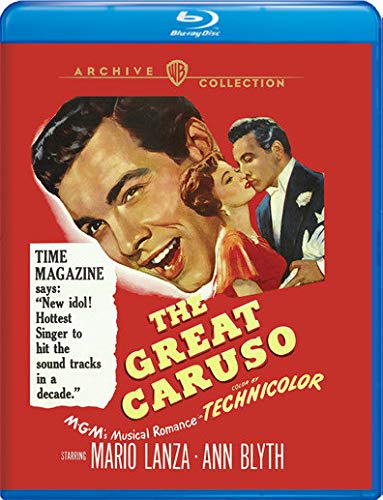
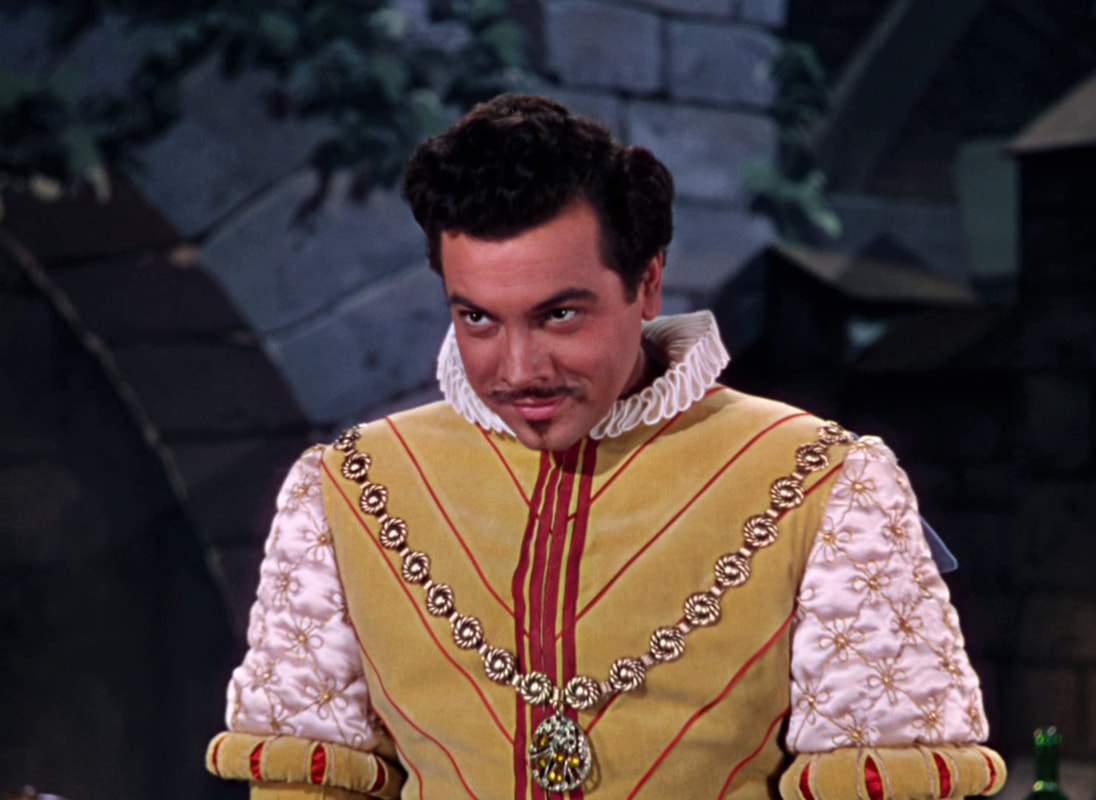


 RSS Feed
RSS Feed